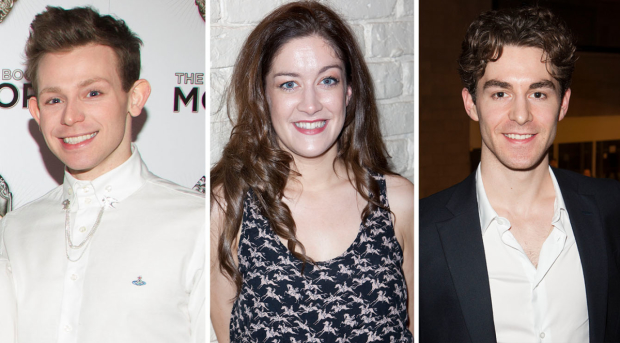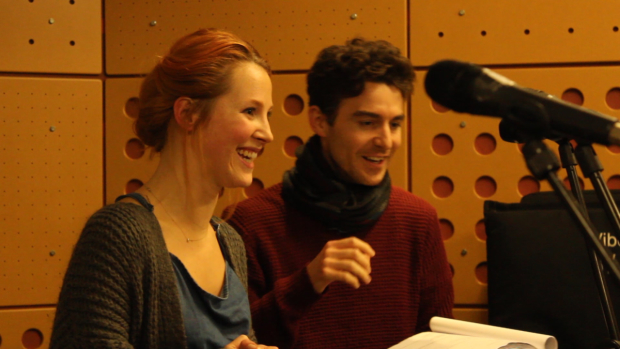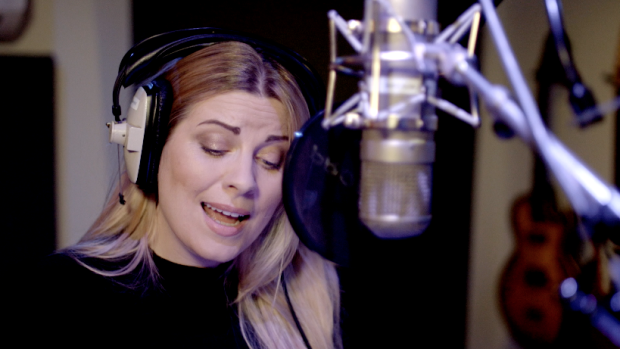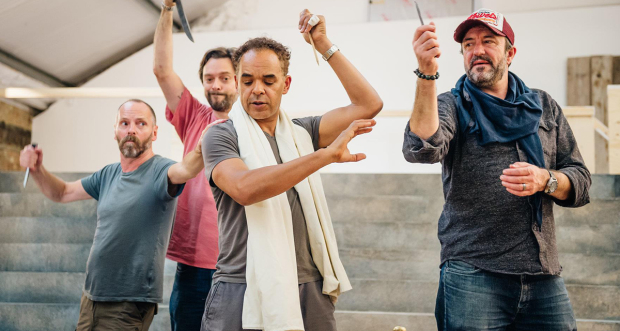Review: The Grinning Man (Trafalgar Studios)
It’s amusing to wonder whether the 19th century French Romantic and political writer Victor Hugo might ever have predicted that his work would still be on stage in musical form in London almost 150 years after his death. Claude Michel-Schönberg and Alain Boublil’s adaptation of his novel Les Miserables tapped into Hugo’s ability to pen a gloriously meaty story packed full of melodrama, high stakes and bristling intensity. Now, a new Victor Hugo kid has arrived on the block and though it is a whole lot darker and kookier than its older sibling, it once again pays homage to the Frenchman’s genius.
The Grinning Man is more fantasy folk tale than Les Miserables‘s historical drama. It tells the story of a horribly disfigured boy (his mouth sliced at the edges by an unknown perpetrator into a huge, bloody gash), a lost baby and the man who adopts them. The narrative is about the discovery of true identities, as the children at the heart of it – Grinpayne and Dea – travel a long, hard and painful road to justice. There are kings, queens, princesses, lords, old puppet masters, clowns, dogs, revenge, love and much, much more.
But though this is a fairytale, sanguine and sugary sweet it ain’t. Director Tom Morris, book writer Carl Grose, lyricists Grose, Tim Phillips, Morris and Marc Teitler with the help of set designer Jon Bausor have ensured the show is a gothic, dark world of magic and mayhem. A huge mouth encircles the stage, jutting out into the audience, while the lights and atmosphere of the Trafalgar Fair – where the wretched eponymous hero stars in a freak show night after night – spills into the stalls. The cast even clamber about the auditorium and we are acutely aware from the off that we are being told a story. From the narrator’s knowing asides to the comic admonishing of the band at the edge of the stage, this is meta storytelling at its most fun.
The musical is hefty: with pushing 30 songs, it is a sturdy beast of a show and some will struggle with that. But the lyrics and melodies – from Phillips and Teitler – are enchanting, unique, often hummable, and occasionally heart stopping. The frequently reprised song "Stars In the Sky" is the one you will come out singing, delivered with an aching rawness by the excellent Sean Kingsley as Ursus – Grinpayne and Dea’s father – who echoes Tom Waits at his most tuneful. Praise indeed in my book. "Labyrinth", sung by Louis Maskell as Grinpayne is also an atonal, intense delight and Maskell’s voice delivers it beautifully. In fact, his voice seems made for these songs: his range is vast and his sound is wonderfully quirky, so that it transports you directly into the world of the play.
The piece treads a line between tragedy and tragicomedy, utilising snippets of physical comedy, and sharp one-liners to make sure this isn’t simply a show about heart ache and pain. There’s much fun on offer from Julian Bleach as Barkilphedro the clown who is a dastardly, yet funny, conniver. Amanda Wilkin as Princess Josiana and Mark Anderson as Prince Dirry-Moir, embarking on a dubious incestuous relationship are also a total riot.
There’s not a weak link in a cast who sing everything from bluesy ballads to Kurt Weill-like satire, all the while making the beguiling lyrics soar. And the puppets – from Finn Caldwell and Toby Olie, who also worked on War Horse and The Elephantom – are astonishing. The child Grinpayne, and the huge wolfy dog which makes up one quarter of the unhappy family at the piece’s heart, feel as alive as the actors.
The plot struggles a little with the second half becoming more complicated than the first, and rushing to get to the show's resolve. But when it arrives there, The Grinning Man is as satisfying and heart-wrenching as anything you might see on stage at the moment. It is a remarkable, entrancing achievement and a treat for anyone who likes their storytelling with plenty of dark magic thrown in.
The Grinning Man runs at Trafalgar Studios until 14 April.














